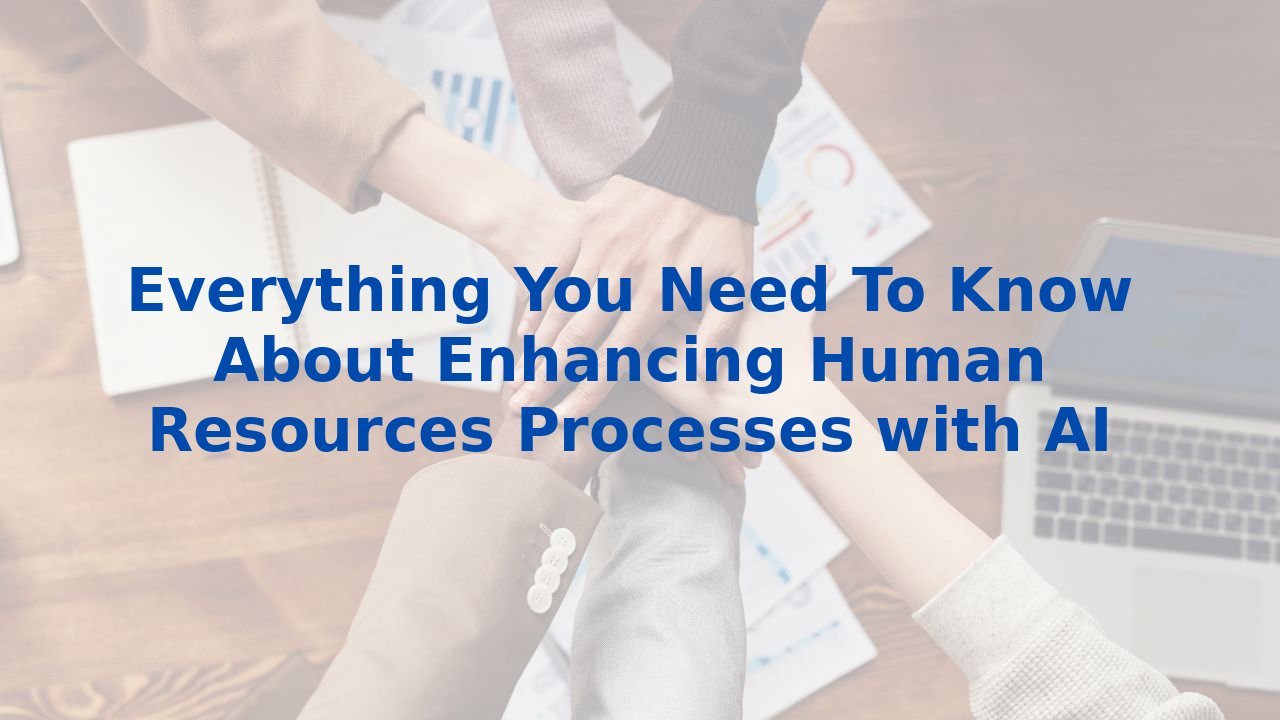Everything You Need To Know About Enhancing Human Resources Processes with AI
Enhancing Human Resources Processes with AI
In today's rapidly evolving business landscape, organizations are realizing the importance of adapting to technological advancements. As Ms. Vo Thi Bich Thuy aptly noted, "Every aspect of human resources is related to people - the most valuable asset of any organization." This perspective underscores the need for businesses to optimize their HR processes and elevate the employee experience. Enter Artificial Intelligence (AI), a powerful ally that can reshape how HR functions, propelling organizations toward greater efficiency and effectiveness.
Streamlining Recruitment and Talent Acquisition
Traditional recruitment methods often involve extensive manual work—sifting through countless resumes, conducting initial screenings, and coordinating interviews. This process can be time-consuming and prone to biases. AI offers a path towards greater efficiency by automating various stages of recruitment. With AI, organizations can employ algorithms that quickly analyze applicants' skills and experiences, identifying the best-fit candidates based on predetermined criteria. This not only speeds up the hiring process but also minimizes the risk of unconscious bias, allowing for a more diverse and inclusive workforce.
Enhancing Employee Engagement and Retention
Once talent is onboarded, maintaining high levels of employee engagement becomes crucial. AI-powered analytics tools can assess employee satisfaction through ongoing feedback mechanisms, identifying trends and potential areas of concern before they escalate. By interpreting vast amounts of data, AI can help HR professionals tailor engagement strategies that resonate with employees. Organizations can develop personalized career development plans and training opportunities, fostering a culture of growth and loyalty. The result? Increased retention rates and enhanced workplace morale.
Training and Development Reinvented
Training is often a cumbersome process, but it doesn’t have to be. With AI-driven learning platforms, employees can access tailored training modules that match their skills and career aspirations. This adaptive learning also allows organizations to track employee progress efficiently, enabling better resource allocation for upcoming training initiatives. Moreover, AI can facilitate just-in-time learning—providing employees the information they need when they need it, leading to greater knowledge retention and application.
Transforming Performance Management
The conventional annual performance review process can feel outdated and stressful for many. AI enables a continuous feedback loop, allowing managers to monitor employee performance in real-time. By analyzing data related to key performance indicators, AI can provide managers with actionable insights and recommendations for performance improvement. This paradigm shift from retrospective assessments to an ongoing dialogue not only engages employees but also results in more meaningful performance evaluations, driving accountability and growth.
Decision-Making Through Predictive Analytics
AI's predictive analytics capabilities empower HR leaders to make data-driven decisions that impact the entire organization. For example, analyzing attrition rates and employee satisfaction can help HR professionals anticipate turnover and create proactive retention strategies. Furthermore, by understanding workforce trends, organizations can intelligently plan future hiring needs, ensuring they remain competitive in their markets. The foresight enabled by AI allows businesses to pivot quickly in response to evolving needs and dynamic market conditions.
The Importance of Training Employees for AI
As organizations integrate AI into their HR processes, investing in training for employees becomes a priority. Providing teams with AI literacy equips them with the necessary skills to leverage AI tools effectively, ensuring they do not become obsolete in the age of automation. Upskilling employees not only enhances productivity but also fosters a culture of innovation, where employees are empowered to harness the power of AI in their daily tasks.
Moreover, a workforce trained in AI is more adaptive to change, making it easier for organizations to implement new technologies. Employees become valuable assets, contributing to a forward-thinking organizational ethos that embraces continuous improvement. Building this competency is crucial for maintaining competitiveness in an increasingly tech-driven workplace.
Conclusion
The integration of AI into human resources processes is not merely an option—it is an imperative for organizations aiming for sustained success. AI enhances efficiency, reduces biases, and transforms conventional HR practices into agile, data-driven processes that prioritize employee engagement. By training employees to utilize AI effectively, businesses cultivate a workforce prepared to harness the advantages of technology, ensuring they remain on the cutting edge of innovation. As we move further into an AI-driven future, the organizations that embrace these changes will undoubtedly thrive.



